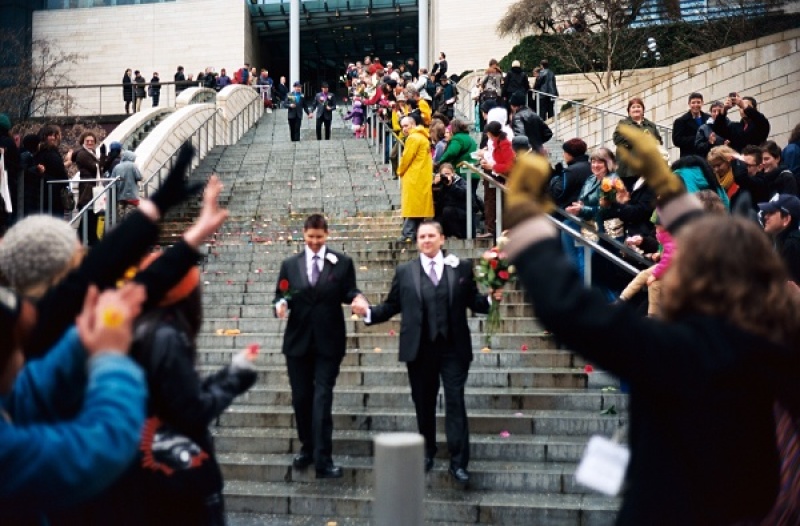
A new LifeWay research shows that pastors are rarely requested to preside over same-sex marriages and that most of the requests are made to Presbyterian and reformed pastors, while Baptist pastors are least likely to be asked to officiate gay weddings.
Since the 2015 ruling that legalized gay marriages, over 120,000 same-sex couples have gotten married, according to a Gallup poll. The study also says that only 9.6 percent of LGBT adults are married.
The LifeWay survey found that only 11 percent of Protestant senior pastors were invited to officiate same-sex marriage. Among Protestants, 18 percent of mainline pastors were asked to perform gay wedding, while only 6 percent of evangelical pastors were invited to do so.
Presbyterian/Reformed pastors were approached more often (26 percent) than Lutherans (19 percent), Methodists (9 percent), Church of Christ (7 percent), and Pentecostals (6 percent). Only 1 percent of Baptist pastors were asked to perform gay weddings.
Older pastors aged between 55 and 64 years (16 percent) were more likely than younger pastors in the age group of 18-44 years (7 percent) and 45-54 years (7 percent) to have been asked to preside over same-sex marriages.
Only 4 percent of the African American pastors were invited to officiate gay weddings.
"Most couples, if they want a church wedding, will ask a pastor they know or who they think will support them," said Scott McConnell, executive director of LifeWay Research. "For same-sex couples, this appears to be an older Presbyterian pastor."
Pastors' opinions on how much LGBT individuals can serve in the church also varied. When the pastors were asked where LGBT people can serve in the church, some 34 percent of senior pastors said "nowhere," and 30 percent responded with "anywhere."
As many as 66 percent Presbyterian/Reformed pastors said that LGBT people can serve anywhere. Methodists (49 percent) were next most likely to say so, followed by Lutherans (42 percent), Pentecostals (13 percent), and Baptists (8 percent).
About 58 percent of the Pentecostals and 54 percent of the Baptists said that their churches will not allow LGBT people to serve. Only 5 percent Methodists, and 14 percent Presbyterian/Reformed pastors were against having LGBT people serve in the church.
About 42 percent of the evangelical pastors and 22 percent of the mainline pastors thought that LGBT people should not serve in the church.
The research says that many pastors are most comfortable if LGBT people serve in the background, and that this preference breaks the stereotypes about evangelical and mainline pastors. Less than half of the evangelical pastors, who are often perceived to be less accepting of LGBT people, would like to completely exclude LGBT people from any role in the church. About half of the mainline pastors, who are perceived as more liberal towards LGBT people, did not want to allow LGBT people to serve in the church.
"More pastors are open to LGBT people serving in their church than being married there," McConnell said.
The survey was conducted on 1,000 Protestant senior pastors over phone between March 9 and 24, and responses were weighted by region for a more accurate representation of the population.



















